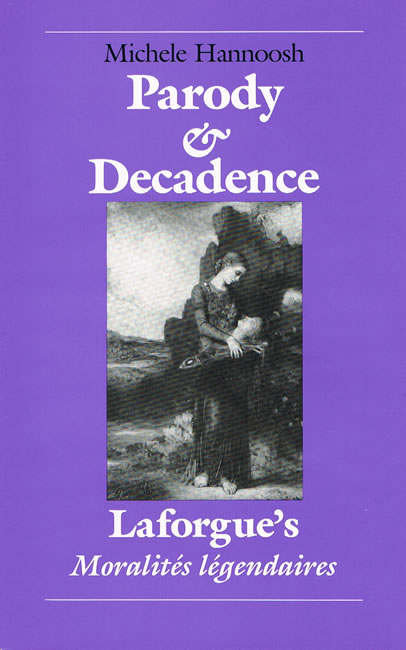Parody and DecadenceLaforgue’s Moralités légendairesMichele Hannoosh |
 1989 LITERARY CRITICISM / European / French 275 pp. 6x9  $24.95 paper 978-0-8142-5323-6 Add paper to shopping cart Shopping Cart Instructions Review/Change Shopping Cart & Check-out |
|||
|
Laforgue’s collection of stories, the Moralités légendaires, freely modernizes established stories of literary tradition according to the stereotypical preoccupations of 1880s Decadence. In this first complete study of the Moralités in any language, Laforgue’s stories emerge as brilliant examples of parody in its most creative form, among the most original prose creations of the late nineteenth century. Laforgue is known to most English-speaking readers as an influence on T. S. Eliot. In France, he is considered a major writer, alongisde Symbolist writers such as Baudelaire, Rimbaud, and Mallarmé. Laforgue’s stories fully exploit the creative possibilities of parody, and thus make a particularly illuminating contribution, resolving many long-standing theoretical questions. The stories provide a rich source for investigating the procedures of parody and for formulating a sufficiently general and flexible theory to account for the diversity of its form over time. They clarify the relation of the parody to the work parodied and the nature of the parody’s target; the role and status of the comic; the reflexive and self-reflexive aspects of parody and their critical and creative implications; the self-sufficiency of a genre normally considered dependent; and the function of parody in literary history, particularly in the avant-garde. By comically transposing legendary stories into a contemporary context, they have considerable, indeed, radical implications for an understanding of this form. Moreover, by focusing on the modern art of the period, the stories provide an analysis, critique, and example of Decadence that encourages a redefinition of that movement and suggests the importance of parody and the comic genres in it. Hannoosh examines the 1880s notion of Decadence with which Laforgue’s Moralités plays and attempts to revise the prevailing view of the movement to reflect the importance of parody therein. She provides close readings of the six stories: Hamlet, Le Miracle des Roses, Lohengrin, Salomé, Persée et Andromède, and Pan et la Syrinx. Using an intertextual model of literary theory, Michele Hannoosh derives a theory of the general overall and addresses the issues raised by metafictional theories of parody from the Russian Formalists onward. Michele Hannoosh is Assistant Professor of French and Comparative Literature at the University of California, Davis. She has written many articles on nineteenth-century French literature and art. | ||||

